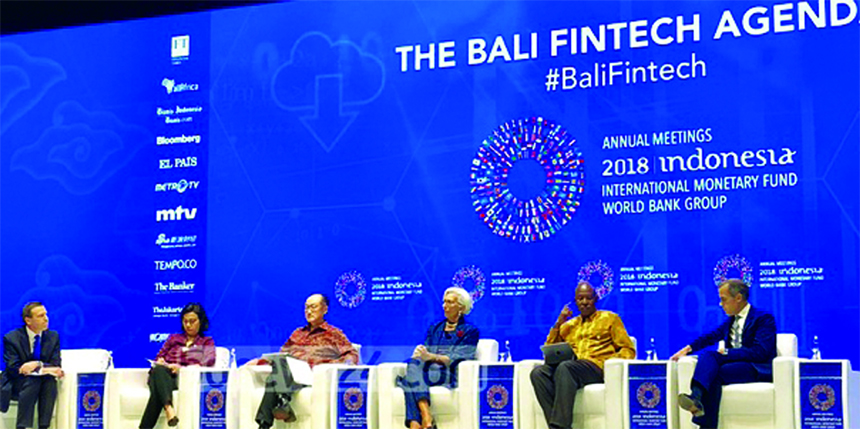
Reuters :
The International Monetary Fund said on Saturday its members pledged to refrain from competitive currency devaluations and step up dialogue on trade, as escalating trade frictions and higher borrowing costs threatened to knock global growth.
The agreement came as US Treasury Secretary Steve Mnuchin reiterated his concern over the yuan’s weakening against the dollar – a drop that Washington suspects may be aimed at giving Chinese exports a trade advantage and offsetting US tariffs.
In a communiqué issued by the IMF’s steering committee, the member countries also agreed to debate ways to improve the World Trade Organisation so it can better address trade disputes.
“We acknowledge that free, fair, and mutually beneficial goods and services trade and investment are key engines for growth and job creation,” the International Monetary and Financial Committee (IMFC) said in the statement.
“We will refrain from competitive devaluations and will not target our exchange rates for competitive purposes,” it added.
Fears that escalating global trade tensions and rising US interest rates could dent growth have roiled global markets in recent days and prompted warnings of heightened risks by finance leaders gathering for the IMF and World Bank annual meetings in the Indonesian resort island of Bali.
“The recovery is increasingly uneven, and some previously identified risks have partially materialised,” the communiqué said, referring to threatened tariffs.
The United States and China have slapped tit-for-tat tariffs on hundreds of billions of dollars of each other’s goods over the past few months, sparked by US President Donald Trump’s demands for sweeping changes to China’s intellectual property, industrial subsidy and trade policies.
The International Monetary Fund said on Saturday its members pledged to refrain from competitive currency devaluations and step up dialogue on trade, as escalating trade frictions and higher borrowing costs threatened to knock global growth.
The agreement came as US Treasury Secretary Steve Mnuchin reiterated his concern over the yuan’s weakening against the dollar – a drop that Washington suspects may be aimed at giving Chinese exports a trade advantage and offsetting US tariffs.
In a communiqué issued by the IMF’s steering committee, the member countries also agreed to debate ways to improve the World Trade Organisation so it can better address trade disputes.
“We acknowledge that free, fair, and mutually beneficial goods and services trade and investment are key engines for growth and job creation,” the International Monetary and Financial Committee (IMFC) said in the statement.
“We will refrain from competitive devaluations and will not target our exchange rates for competitive purposes,” it added.
Fears that escalating global trade tensions and rising US interest rates could dent growth have roiled global markets in recent days and prompted warnings of heightened risks by finance leaders gathering for the IMF and World Bank annual meetings in the Indonesian resort island of Bali.
“The recovery is increasingly uneven, and some previously identified risks have partially materialised,” the communiqué said, referring to threatened tariffs.
The United States and China have slapped tit-for-tat tariffs on hundreds of billions of dollars of each other’s goods over the past few months, sparked by US President Donald Trump’s demands for sweeping changes to China’s intellectual property, industrial subsidy and trade policies.

